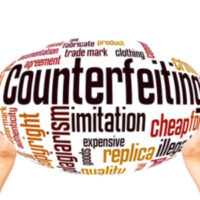How Does Maryland Define & Punish Counterfeiting?

Under the Maryland Criminal Code, counterfeiting is a white collar crime that involves the unlawful reproduction of documents or instruments. In order to qualify as counterfeiting under Maryland law, fraudulent intent is generally required, although in certain circumstances mere possession of counterfeit documents or instruments can be a criminal offense.
Counterfeiting Documents or Instruments
Maryland Code, Criminal Law Section 8-601 makes it unlawful to counterfeit documents or instruments with the intent to commit fraud. In this context, it does not matter if the ultimate fraud is successful. The mere act of counterfeiting — coupled with fraudulent intent — is enough to violate Section 8-601.
Counterfeiting laws under Section 8-601 apply to the following types of documents and instruments:
- Bonds;
- Checks;
- Deeds;
- Drafts;
- Endorsements or assignments of bonds, checks, drafts, or promissory notes;
- Entries in account books or ledgers;
- Letters of credit;
- Negotiable instruments;
- Powers of attorney;
- Promissory notes;
- Releases or discharges for money or property;
- Titles to a motor vehicle;
- Waivers or releases of liens; and
- Wills or codicils.
Furthermore, Section 8-601 prohibits any person from willfully aiding or assisting in the counterfeiting process, but this element only applies if the person aiding or assisting also demonstrates an intent to commit fraud.
Under Section 8-601, counterfeiting documents or instruments is a felony crime. If convicted for this felony, the maximum sentence includes imprisonment for 10 years and fines up to $1,000.
Possessing Counterfeit Documents or Instruments
Section 8-601 also makes it unlawful to knowingly possess a counterfeit document or instrument. In order to qualify as a violation of Section 8-601, a person must knowingly and willingly possess a counterfeit document or instrument with the intent to commit fraud. Stated otherwise, a person must know — or have a reason to know — that they are in possession of a counterfeit document or instrument.
Under Section 8-601, possession of a counterfeit document or instrument is a misdemeanor offense. If convicted for this misdemeanor, the maximum sentence includes imprisonment for 36 months and fines up to $1,000.
Manufacturing Counterfeit U.S. Currency
Maryland Code, Criminal Law Section 8-604 establishes special laws and penalties for the counterfeiting of U.S. currency. Under this section, it is unlawful to:
- Manufacture U.S. currency;
- Create counterfeit U.S. currency; or
- Record or possess images of U.S. currency.
Under Section 8-601, manufacturing or counterfeiting U.S. currency is a felony crime. If convicted for this felony, the maximum sentence includes imprisonment for 10 years and fines up to $10,000.
Possessing or Issuing Counterfeit U.S. Currency
Maryland Code, Criminal Law Section 8-604.1 makes it illegal to possess or issue counterfeit U.S. currency with unlawful intent. Any person who violates this section is guilty of a misdemeanor offense. If convicted for this misdemeanor, the maximum sentence includes imprisonment for 36 months and fines up to $1,000.
Let Us Help You Today
If you have legal questions about counterfeiting or other criminal offenses in Maryland, it can be highly beneficial to contact a seasoned criminal defense attorney. The Bel Air white collar crime attorneys at Schlaich & Thompson, Chartered have more than 60 years of combined legal experience in criminal and family law, including counterfeiting. If you need legal help, contact us today for an initial consultation.
https://www.stclaw.net/when-does-a-maryland-traffic-offense-result-in-drivers-license-suspension/























